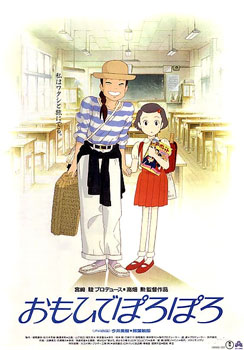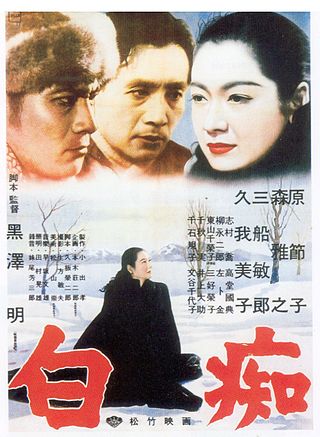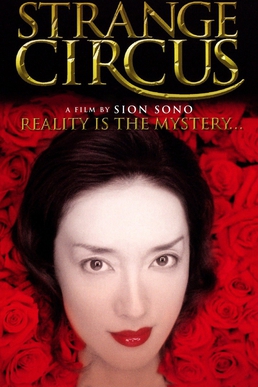Related Research Articles
The Makioka Sisters is a novel by Japanese writer Jun'ichirō Tanizaki that was serialized from 1943 to 1948. It follows the lives of the wealthy Makioka family of Osaka from the autumn of 1936 to April 1941, focusing on the family's attempts to find a husband for the third sister, Yukiko. It depicts the decline of the family's upper-middle-class, suburban lifestyle as the specter of World War II and Allied Occupation hangs over the novel.
The Makioka Sisters is a 1983 drama film directed by Kon Ichikawa based on the serial novel of the same name by Jun'ichirō Tanizaki. It depicts the pre-war lifestyle of the wealthy Makioka family from Osaka with parallels to the seasons in Japan.

Only Yesterday is a 1991 Japanese animated drama film written and directed by Isao Takahata, based on the 1982 manga of the same title by Hotaru Okamoto and Yuko Tone. It was animated by Studio Ghibli for Tokuma Shoten, Nippon Television Network and Hakuhodo, and distributed by Toho. It was released on July 20, 1991. The ending theme song "Ai wa Hana, Kimi wa sono Tane" is a Japanese translation of Amanda McBroom's composition "The Rose".
Noriaki Kubo, known professionally as Tite Kubo, is a Japanese manga artist and character designer. His manga series Bleach (2001–2016) had over 130 million copies in circulation as of 2022.

The Idiot is a 1951 Japanese film directed and written by Akira Kurosawa. It is based on the 1869 novel The Idiot by Fyodor Dostoevsky. The original 265-minute version of the film, faithful to the novel, has been long lost. A nearly three-hour release, reflecting a 100-minute studio-imposed cut, currently survives as the most complete version of the film available for contemporary audiences.

Japan competed at the 1972 Summer Olympics in Munich, West Germany. 184 competitors, 148 men and 36 women, took part in 113 events in 21 sports.

Ichigo Kurosaki is a fictional character in the Bleach manga series and its adaptations created by Tite Kubo. He is the main protagonist of the series, who receives Soul Reaper powers after meeting Rukia Kuchiki, a Soul Reaper assigned to patrol around the fictional city of Karakura Town. These powers come at the cost of her own, and as a result, he concedes to work as her stand-in, fighting to protect people from evil spirits called Hollows and sending good spirits, wholes, to a dimension known as the Soul Society. Ichigo appears in other media after the manga series, including the anime television series, four anime films, two original video animations, rock musicals, several video games, light novels and the 2018 live-action film.
Taeko Watanabe is a Japanese manga artist. She made her professional debut in 1979 with the short story Waka-chan no Netsuai Jidai. In 1987, she won the Excellence Award at the 16th Japan Cartoonists Association Awards for her comedy series St. 14 Graffiti. She has twice received the Shogakukan Manga Award in the shōjo category: in 1991 for Hajime-chan ga Ichiban! and in 2003 for Kaze Hikaru.
Taeko is a Japanese female given name. It can have various meanings depending on the Kanji used. Possible writing include:

The bahay kubo, also known as payag (Nipon) in the Visayan languages, is a type of stilt house indigenous to the Philippines. It often serves as an icon of Philippine culture. The house is exclusive to the lowland population of unified Spanish conquered territories. Its design heavily influenced the colonial-era bahay na bato architecture.

Kōno Taeko was a Japanese writer during the second half of the twentieth century. Kōno belongs to a generation of female Japanese writers who became more well known in the 1960s and 70s. She established a reputation for herself as an acerbic essayist, a playwright, and a literary critic.

Carved: The Slit-Mouthed Woman is a 2007 Japanese horror film directed by Kōji Shiraishi and written by Shiraishi and Naoyuki Yokota. Based on the Japanese urban legend known as Kuchisake-onna, or "the Slit-Mouthed Woman", the film stars Eriko Sato as Kyōko Yamashita, a divorced mother and teacher who attempts to solve a series of child abduction cases with the help of her co-worker Noboru Matsuzaki, played by Haruhiko Kato.

Paul Nobuo Tatsuguchi, sometimes mistakenly referred to as Nebu Tatsuguchi, was a Japanese soldier and surgeon who served in the Imperial Japanese Army (IJA) during World War II. He was killed during the Battle of Attu on Attu Island, Alaska, United States, on May 30, 1943.

The Honjin Murders is a mystery novel by Seishi Yokomizo. It was serialized in the magazine Houseki from April to December 1946, and won the first Mystery Writers of Japan Award in 1948. It was filmed as Death at an Old Mansion in 1976. In 2019, it was translated into English for the first time by Louise Heal Kawai, and the translation was named by The Guardian as one of the best recent crime novels in 2019.

Strange Circus is a 2005 Japanese horror drama film written and directed by Sion Sono.

Tea Over Rice or The Flavor of Green Tea over Rice is a 1952 Japanese film directed by Yasujirō Ozu. The screenplay concerns a wealthy middle-aged couple who have marital difficulties, and their niece who uses the couple's troubles as her excuse for not attending arranged marriage interviews.

Kubo and the Two Strings is a 2016 American stop-motion animated action fantasy film produced by Laika. It is directed by Travis Knight with a screenplay by Marc Haimes and Chris Butler from a story by Shannon Tindle and Marc Haimes, and it stars the voice roles of Charlize Theron, Art Parkinson, Ralph Fiennes, George Takei, Cary-Hiroyuki Tagawa, Brenda Vaccaro, Rooney Mara, and Matthew McConaughey. The film revolves around Kubo, a young boy who wields a magical shamisen and whose left eye was stolen during infancy. Accompanied by an anthropomorphic snow monkey and beetle, he must embark on a quest to defeat his mother's evil twin Sisters and his power-hungry grandfather, the Moon King, who is responsible for stealing his left eye.
Taeko Onuki is a Japanese singer and songwriter. She is influential in the city pop genre.

Takefusa Kubo is a Japanese professional footballer who plays as a winger for La Liga club Real Sociedad and the Japan national team.

Sunshower is the second studio album by Taeko Ohnuki, released on July 25, 1977. The album combines elements of J-pop, smooth jazz, rock, and city pop. A commercial disappointment at the time of its release, the album later garnered critical acclaim.
References
- ↑ "Taeko Kubo". Olympedia. Retrieved 19 May 2020.